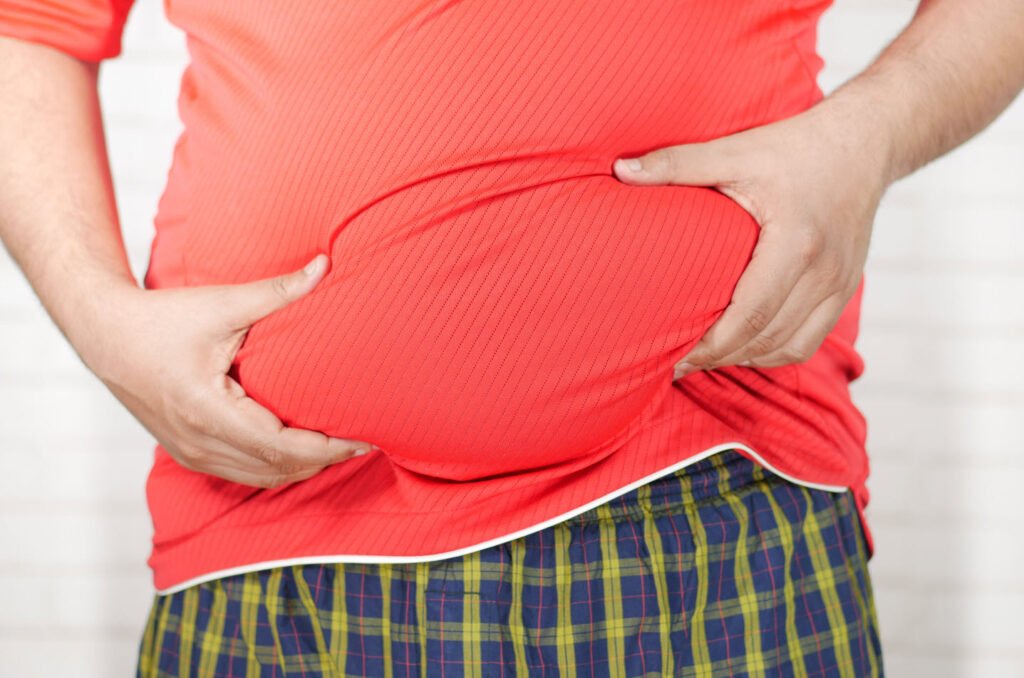Constipation is a common digestive tract disorder in which the bowels do not move easily, are not totally emptied when they move, or they move seldom. Constipation creates poisons that are the main culprit in the development of many ailments in all regions of the body after finding their way into the bloodstream.
Also Read: Glaucoma – Eye Disorders, Its Symptoms, Causes and Treatment
This weakens the condition of the critical organs and a reduction in the system’s overall resilience. Rheumatism and appendicitis Chronic constipation is a significant risk factor for a number of disorders, including cancer, high blood pressure, cataracts, and arthritis.
Different people require different amounts of movement for normal health. Most people only have one motion each day, while some people have two and still others only have one once every other day. However, it is necessary and normal to have at least one clean bowel movement per day for comfort and health.
Symptoms
Constipation is characterized by irregularity, difficulty, or infrequent bowel movements brought on by hard feces. A coated tongue, bad breath, appetite loss, headache, dizziness, dark circles under the eyes, depression, nausea, zits on the face, mouth ulcers, constant fullness in the abdomen, diarrhea that alternates with constipation, varicose veins, pain in the lumbar region, acidity, heartburn, and insomnia are some additional symptoms.
Causes
The incorrect food and a bad way of life are the two main causes of persistent constipation. All meals in their natural state have a significant amount of “roughage,” which is crucial for maintaining the nutritional balance of foods and supporting peristalsis, the natural rhythmic movement that moves food through the digestive tract. Today’s food is typically very low in natural bulk or roughage, which leads to chronic constipation.
- Poor bowel function may be caused by the consumption of processed, rich foods devoid of vitamins and minerals, inadequate water intake, excessive meat consumption, excessive use of strong tea and coffee, inadequate chewing, overeating, and the wrong food combinations, as well as irregular eating and drinking habits.
- Other contributing factors include faulty and irregular defecation patterns, frequent purgative use, abdominal muscle weakness brought on by sedentary lifestyles, inactivity, and emotional stress.
- Chronic constipation can also be brought on by conditions like tumours or growths, a sluggish liver, colitis, a spastic intestine, hyperacidity, diseases of the rectum and colon, bad teeth, uterine diseases, diabetes, use of certain medications for treating other conditions, abnormalities in the lower spine, and enlargement of the prostate glands.
Treatment
A healthy, straightforward diet is the most crucial component in the treatment of constipation.
- Included in this should be unrefined foods like whole grain cereals, bran, honey, molasses, and lentils; green and leafy vegetables, particularly spinach, french beans, tomatoes, lettuce, onion, cabbage, cauliflower, brussels, sprouts, celery, turnip, pumpkin, peas, and asparagus; fresh fruits, particularly pears, grapes, figs, papayas, mangoes, grapefruit, gooseberries, guava, and oranges.
- The diet is insufficient on its own. Each bite of food needs to be properly chewed at least 15 times. Avoid rushing through meals and eating unusual hours.
- Sugar should be avoided at all costs since it deprives the body of B vitamins, which are essential for the intestines to operate normally. Likewise, sugary foods are to be avoided. Hard-boiled eggs, rice, bread, lentils, cakes, pastries, biscuits, cheese, meaty dishes, preserves, and items made with white flour are all regarded as constipating foods.
- Constipation and other health problems like systemic cleaning, blood thinning, and poison clearance are all prevented by regular water consumption. As it is necessary for the digestion and dissolution of food nutrients so that they can be absorbed and used by the body, water should typically be consumed in the range of six to eight glasses per day. However, drinking water with meals is not advised because it dilutes the stomach fluids necessary for efficient digestion. Drinking water is advised either 30 minutes prior to or one hour following meals.
- In general, all fruits—with the exception of banana and jackfruit—are helpful for treating constipation. However, certain fruits are more efficient than others. The best laxative is thought to be bael fruit. The intestines are cleansed and toned. Even the old collected faecal matter is thrown out after using it consistently for two or three months. Bael has laxative and constipation properties but is typically used to treat diarrhea. When the bowels are constipated, it acts as a laxative and hardens loose stools. It should ideally be consumed before dinner and in its original form. An adult can consume about 60 grammes of the fruit.
- The next-best fruit for treating constipation is said to be pears. For a few days, patients with chronic constipation should eat nothing but this fruit or its juice, but in most situations, a medium-sized pear eaten with breakfast or after dinner will have the required effect.
- The same is true with guava, which, when consumed with seeds, adds roughage to the diet and facilitates regular bowel movements.
- Additionally, grapes have proven to be very effective in treating constipation. Grapes are a laxative food due to the cellulose, sugar, and organic acid qualities combined. There, the range of action is not just confined to bowel movements. Additionally, they improve stomach and intestine tone and treat the most severe constipation. To get the desired outcomes, one should consume at least 350 grammes of grapes each day. If fresh grapes are unavailable, you can substitute raisins soaked in water. For 24 to 48 hours, raisins should be soaked in a tumbler of drinking water. They would enlarge to their original grape size as a result. Early in the morning is the best time to eat the raisins. In addition to the soaked raisins, the water should also be consumed.
- Another successful treatment for constipation is to drink hot water mixed with sour lime juice and half a teaspoon of salt. Drinking water that has been kept in a copper vessel over night and consumed first thing in the morning will provide positive effects.
- In particularly challenging situations of constipation, linseed is quite helpful. Before every meal, a teaspoon of linseed is consumed with water for both bulk and lubrication.
An all-fruit diet or the short fast, as the case may be, the patient should gradually embark upon a balanced diet comprising adequate raw foods, ripe fruits and whole grain cereals.
It some cases, further short periods on fruits or short fasts may be necessary at intervals of two months or so,depending on the progress being made. The bowels should be cleansed daily through a warm water enema for a few days at the commencement of the treatment.
A cold friction bath taken daily in the morning can help cure constipation. Before going to bed, taking a hot and cold bath alternately is also useful. Exercises for the abdomen and mechanical or manual vibratory massage frequently have a reviving and energising impact.

Constipation can also be treated by toning the muscles. The muscles are strengthened and activated by exercise, outdoor activities, walking, swimming, gardening, and fresh air, which helps to prevent constipation.
Suggested Read: How to Choose the Best Diet for Your Personal Weight Loss Goals
Yoga poses that strengthen the pelvic and abdominal muscles and encourage the peristaltic motion of the bowels can also assist to relieve constipation. Bhujangasana, Shalabhasana, Yoga Mudra, Dhanurasana, Halasana, and Paschimottanasana are some examples of these asanas. Additionally useful are the pranayamas anuloma-viloma, bhastrika, and jala neti kriya.



